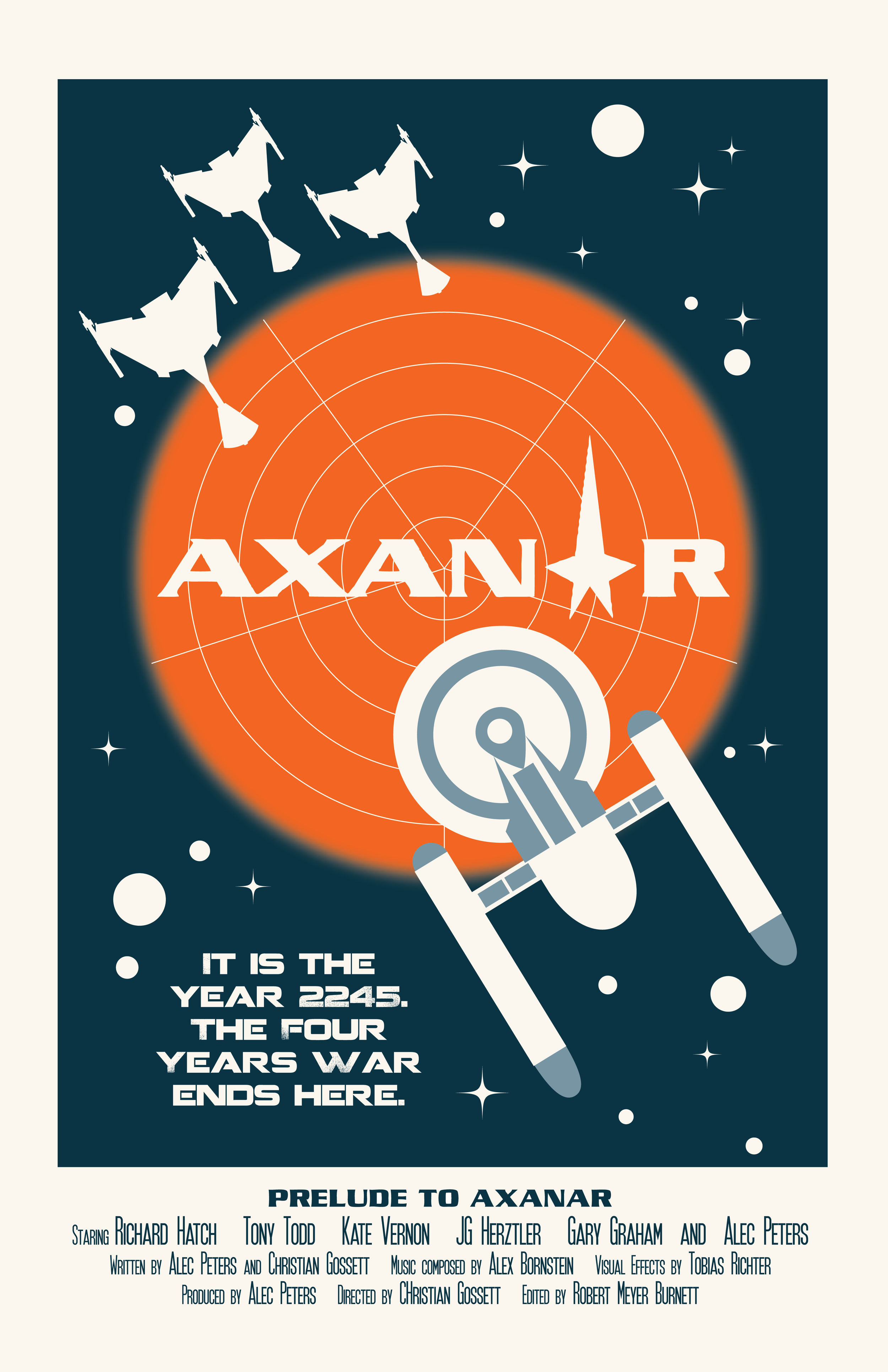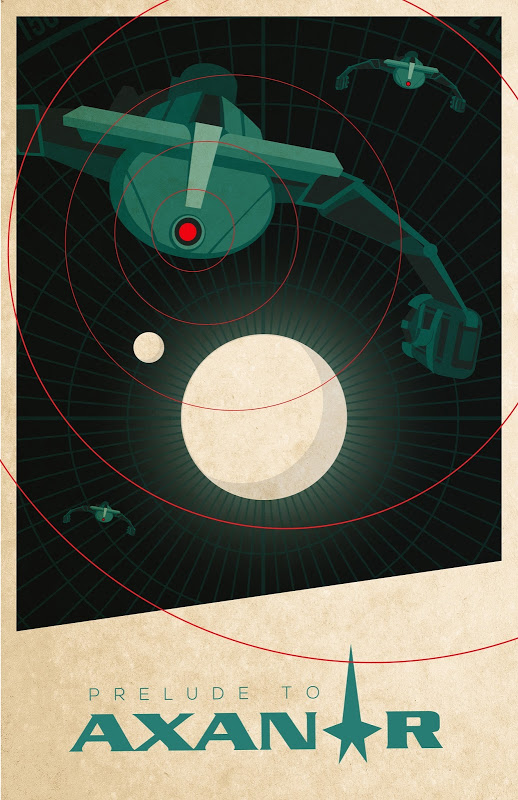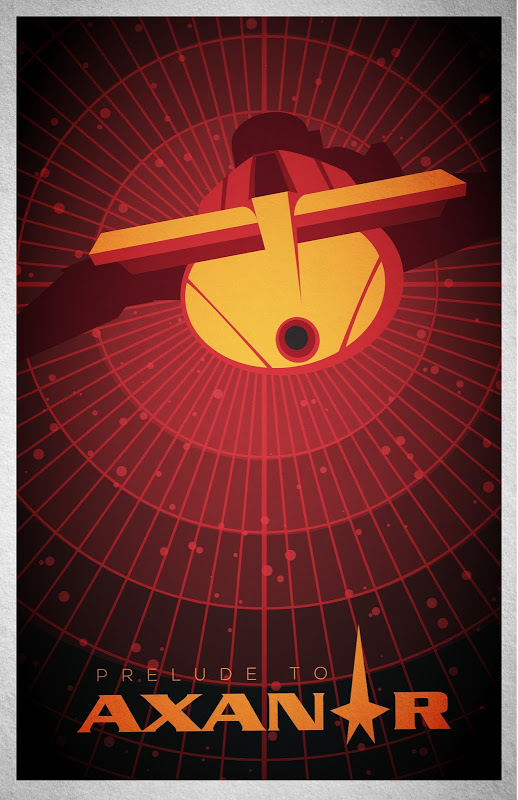Paramount Releases Star Trek Fan Film Guidelines, Shows Other Studios How To Interact With Fans
/Surely you’ve heard by now the story of the troubled fan film, Star Trek: Axanar. The film, which had earned over a million dollars from backers on Kickstarter and Indiegogo, was sued by Paramount for violating “innumerable copyrighted elements of Star Trek, including its settings, characters, species, and themes." While Star Trek fan films have been around forever (I was a Trekkie as a kid and remember seeing them a lot at meetings and conventions), Paramount seemed especially concerned about Axanar’s size and scale - high quality visual effects, name actors, feature-length runtime, etc. I guess they were concerned that a film of sufficient quality could impact not only the release of Star Trek Beyond, but its future slate of Trek films and spinoffs.
I followed the matter closely, but withheld my commentary because A) I wanted to see how it would resolve, and B) I didn’t have anything to add to the existing pool of outrage. I typically despise large corporations who pick on their fans, but I also have a complicated relationship with fan films. On the one hand most of them are terrible and I think their mere existence actually cheapens the property they purport to celebrate. I don’t think they add much to the conversation and they perpetuate isolation inside a franchise, leading to fans who end up with bad social habits. On the other hand, they’re mostly harmless, legally and otherwise.
While I was conflicted, Justin Lin, the director of Star Trek Beyond and a huge Trekkie himself, wasn’t. He was angered at the way Paramount was treating Trek fans and requested that Paramount drop the suit against the makers of Axanar. Shockingly, they agreed [CLARIFICATION: the lawsuit is still ongoing pending settlement talks between Paramount and the filmmakers]. But more than that, Paramount did something truly unprecedented. The studio (which owns the feature film rights) along with CBS (which owns the TV rights) jointly announced that they were releasing guidelines for all future fan films, stating that:
CBS and Paramount Pictures are big believers in reasonable fan fiction and fan creativity, and, in particular, want amateur fan filmmakers to showcase their passion for Star Trek. Therefore, CBS and Paramount Pictures will not object to, or take legal action against, Star Trek fan productions that are non-professional and amateur and meet the following guidelines.
Now let’s be honest. Paramount probably didn’t have a change of heart for altruistic reasons. Most likely it’s because Star Trek Beyond isn’t tracking well and they need fans to come out and support it. But no matter why they about-faced, this is a HUGE deal. I seriously cannot overstate how unprecedented it is for a major copyright holder to knowingly permit reasonable violations of its intellectual property. The guidelines themselves are restrictive, but not out of the realm of what one should expect from a major movie studio.
- The film must be 15 minutes or less and must be a one-off (no sequels or episodes).
- The film may not use the name Star Trek in the title and may not be termed “official.” It can use a subtitle with the phrase A STAR TREK FAN PRODUCTION.
- The content must be original, not a reproduction or recreation from any existing Star Trek production.
- If the film uses commercially-available Star Trek uniforms, accessories, toys and props, they must be official merchandise and not bootleg items or imitations of such commercially available products.
- The film’s creators and actors must be amateurs, cannot be compensated for their services, and cannot be employed on any Star Trek production.
- The film must be non-commercial: it may not fundraise more than $50,000, it cannot be screened for profit, it cannot be distributed on DVD or Blu-Ray, it cannot be used to create advertising revenue, and it cannot sell or license off fan film sets, costumes, props, etc.
- The film must be family friendly and suitable for public presentation, including no profanity, nudity, obscenity, drugs, alcohol, or other harmful or offensive material. It cannot defame or libel anyone or violate a person’s right to privacy.
- The film must display a disclaimer in the credits and marketing material stating that Star Trek is solely owned by CBS Studios.
- Creators of fan films must not seek to register their works, nor any elements of the works, under copyright or trademark law.
- Fan films cannot create or imply any association or endorsement by CBS or Paramount Pictures.
If you’re a Star Trek fan with more than a little filmmaking talent, it’s easy to look at these guidelines and feel like Paramount is putting a knife to your throat. With a top budget of $50,000, you’re not going to end up with professional looking stuff like this:
But it’s important to remember a few things. First, most fan films are bad. Even the ones that look good (i.e. good costuming, lighting, cinematography), like this one…
… are still poorly acted and scripted. For the vast majority of fan filmmakers, the restrictions aren’t going to limit them in a way that their lack of talent already doesn’t.
Second, as harsh as it sounds, Paramount doesn’t owe anything to its fans. It doesn't have to drop the Axanar suit [it still may not] and it certainly didn’t have to issue any guidelines to permit fans to continue making fan films. Under existing U.S. copyright law, Paramount owns the rights to all feature film adaptations of Star Trek, including any derivative works. Derivative works are adaptations, translations, or modifications of a pre-existing work, and fan films certainly fall under that umbrella. The way our copyright law is set up, only the copyright owner can make or authorize a derivative work, so any fan film that uses Trek imagery, settings, themes, or characters would be infringing unless authorized by Paramount.
But even though Paramount is within its legal right to sue the makers of Axanar, reversing course is the right move. Not just because it's the moral thing to do - hammering little guys hard is never a good look, especially if the little guy is a fan who is simply trying to express his or her love for your property - but because maintaining goodwill in the face of the impending release of Star Trek Beyond, the 50th Anniversary Celebration, and a new Blu-Ray set is just good business. Goodwill is important because it speaks to the reputation of your company. When you're a big company, your reputation is a crucial asset and can add significant value. When things go wrong, the damage to your reputation could result in lower revenues and, if you're not careful, your demise. People can and do vote with their dollars. See what's going on with McDonald's to get a sense of how bad will can affect the bottom line.
So as restrictive as the guidelines may appear, Paramount is actually taking a really progressive stance here. I kind of wish it wasn’t over something as minor key as fan films, but whatever. Whenever a studio elects to be generous, you take it however it comes. Whether or not this is a good thing isn’t what concerns me, though. The real question I have is this: will other studios follow Paramount’s lead?
Honestly, no. They probably won’t. Paramount had a very specific timing problem they had to rectify. Studios aren’t likely to give leeway to its fans unless their bottom lines will be adversely affected. And that’s too bad because time and time again it’s been shown that embracing fans - not litigating against them - is much more effective at creating goodwill.
And when it comes to fan films, it’s a losing battle anyway. Fan filmmakers aren’t going to stop. And the likelihood that their films will actually hurt a studio’s bottom line is slim to nil. Luckily, it looks like Paramount realized that before it was too late. Embracing the fans is the way of the future. That’s how companies like Paramount will continue to live long and prosper.













